Game Night!
Submitted by Adam Cornish on Wed, 2016-09-21 18:03FREE GAME NIGHT
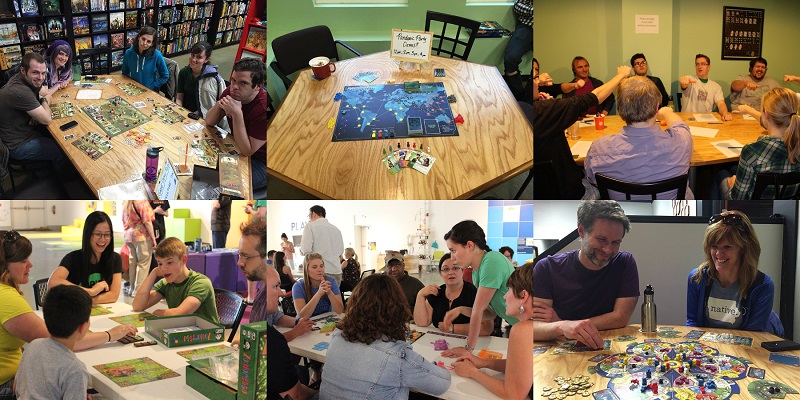
- date_range September 27, 2016
- alarm 6:00 PM to 11:00 PM (CDT)
- placeSpielbound Board Game Cafe
- payment Free!
Come and join us for a game night dedicated to the nonprofit side of Spielbound! We work all over the Omaha area to promote and fulfill our mission: striving to educate, engage, and create community through board games. We have 4 branches that all depend upon our large, donated library and our volunteers:
- Education – works to develop young minds by challenging them! Programs include: day camps, game-specific lesson plans, and UNO educator trainings.
- Stay Sharp Seniors – devoted to the senior community in many areas that include developing senior game-playing groups, researching the health benefits of gaming, and creating accessories that make games more accessible to all.
- Spielmasons – a collective of board gaming enthusiasts that meet weekly to play and test games developed locally.
- Everyone Plays – our primary community outreach: game events all over Omaha, daily demos in our library, and endless opportunities to engage with people and organizations.

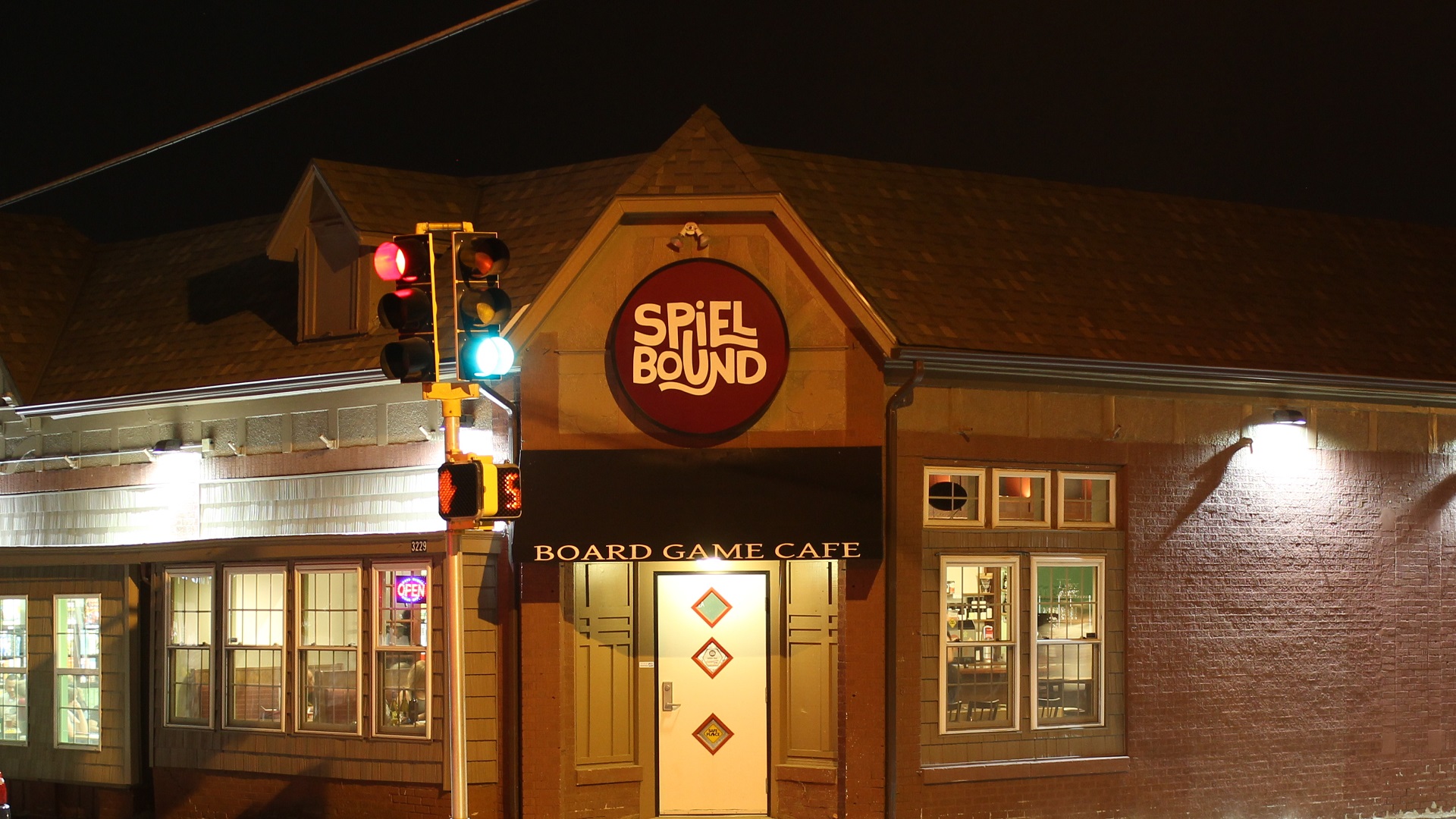
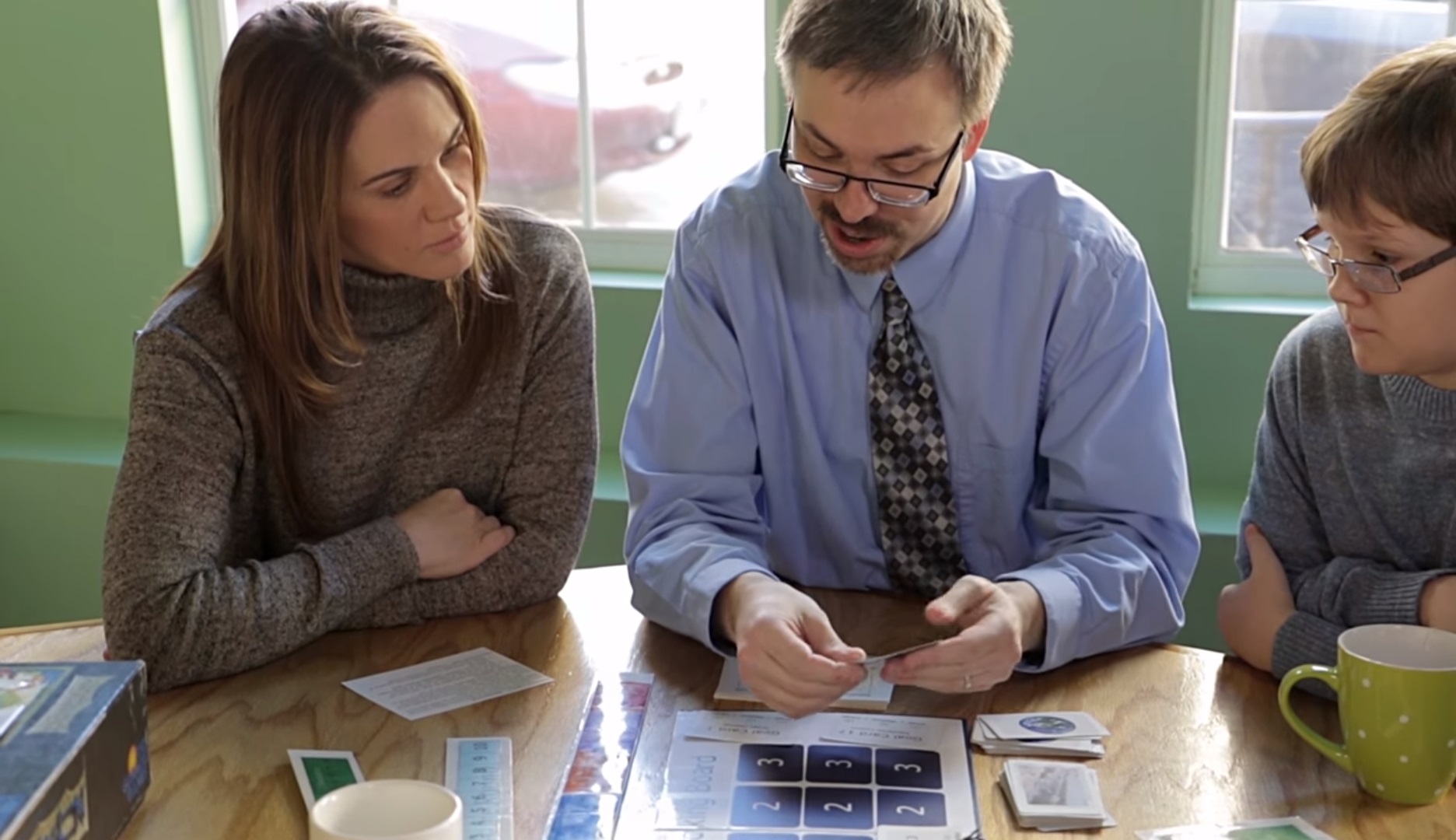
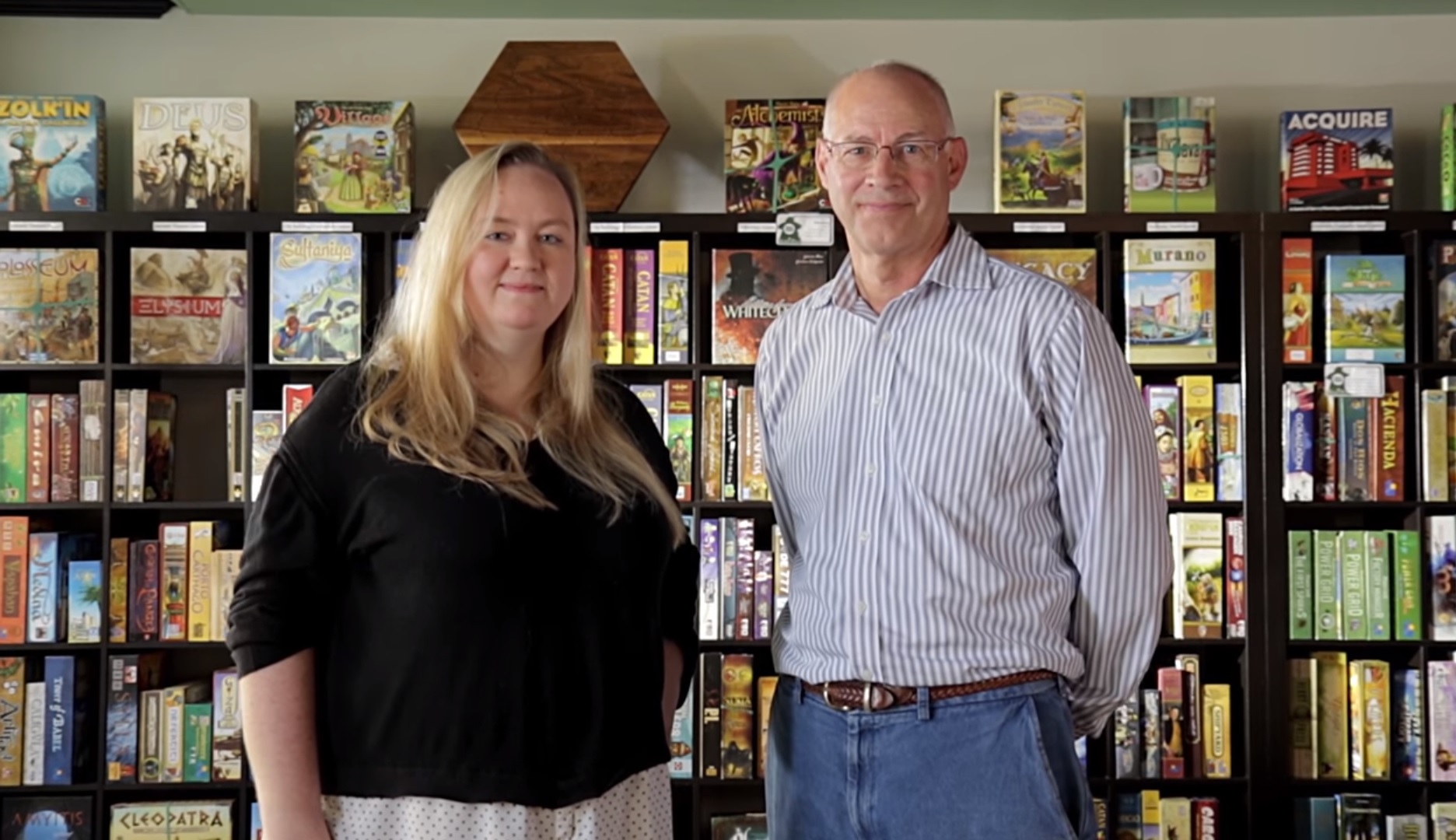
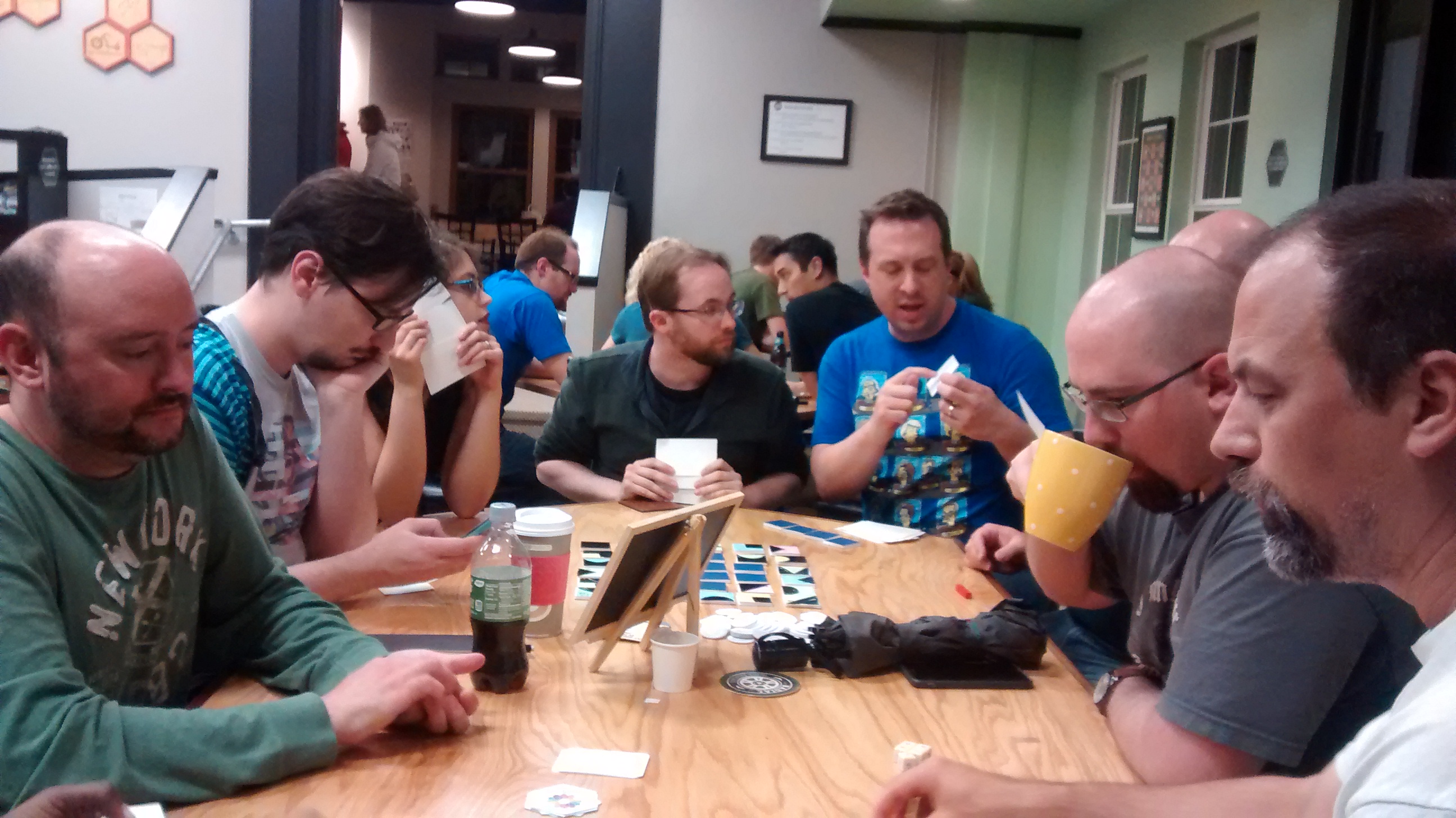
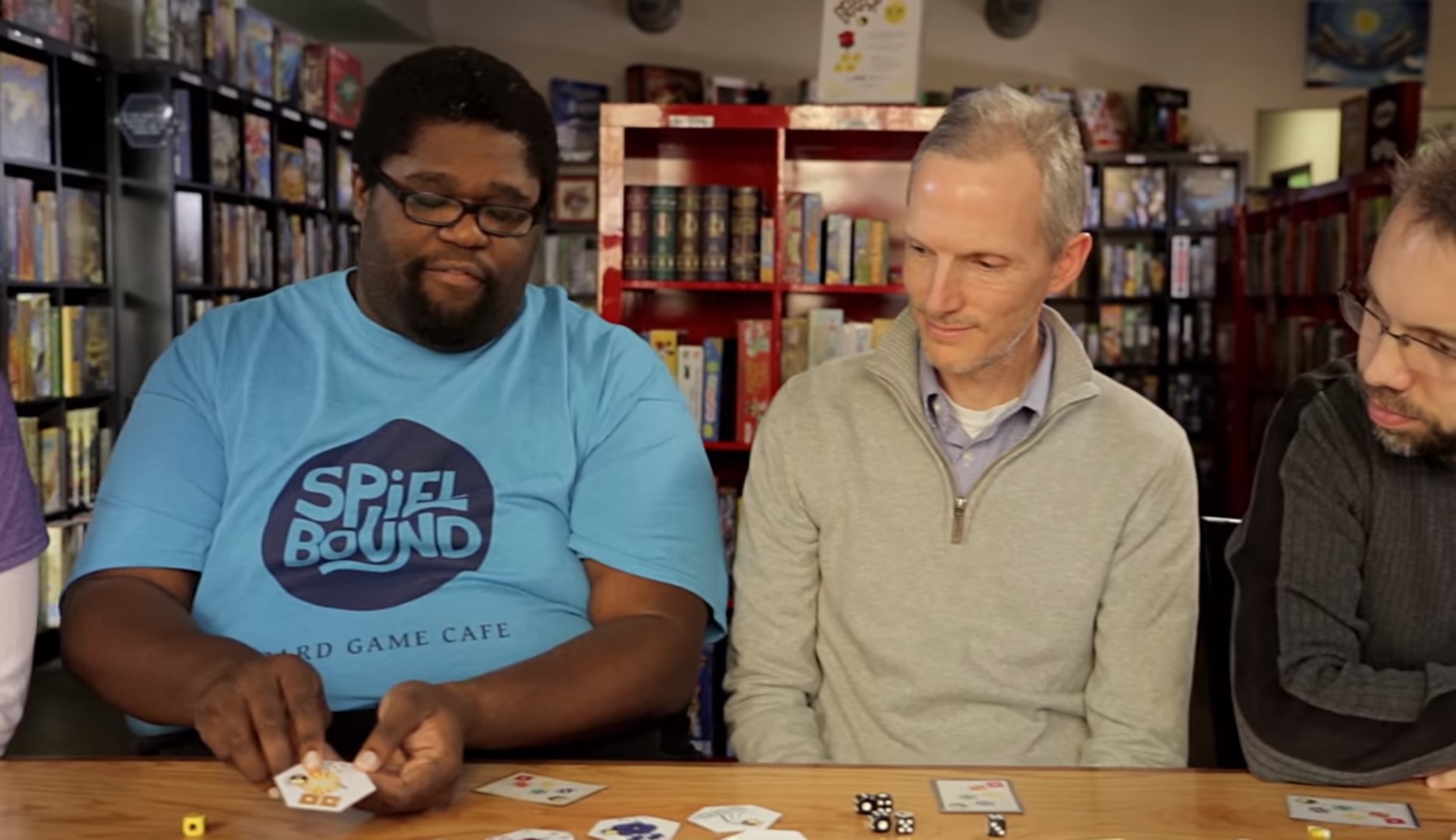
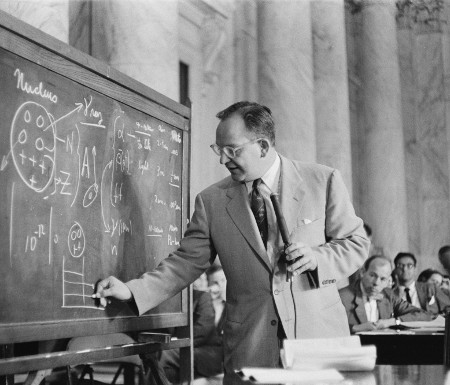 Dr. Mark Mills drawing diagrams on a blackboard during testimony before the Congressional Joint Atomic Energy Committee hearings on atomic radioactive fallout, 1957. Hopefully integrating games into your curriculum isn't quite this complicated.
Dr. Mark Mills drawing diagrams on a blackboard during testimony before the Congressional Joint Atomic Energy Committee hearings on atomic radioactive fallout, 1957. Hopefully integrating games into your curriculum isn't quite this complicated.
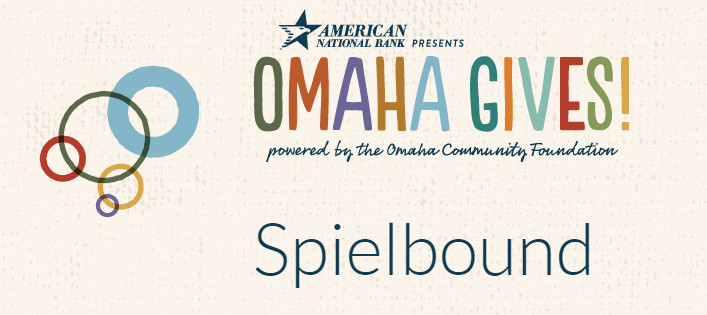
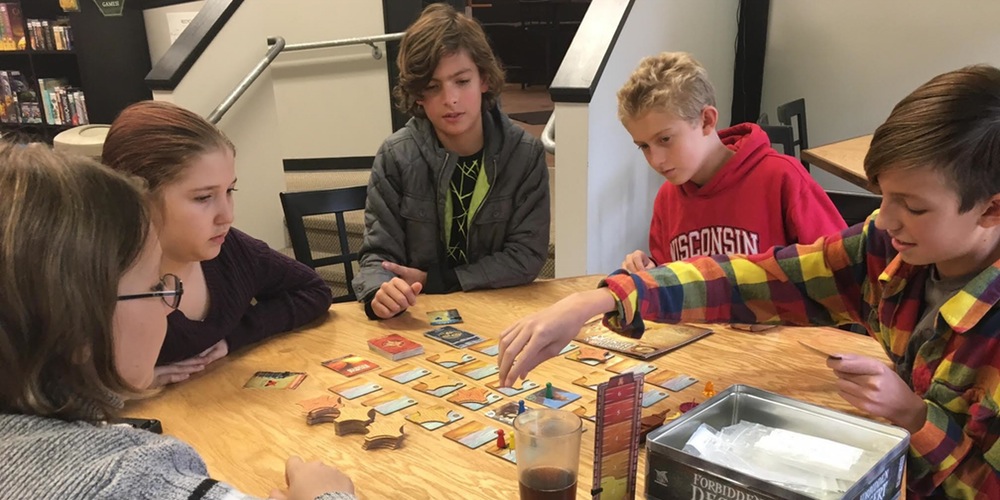
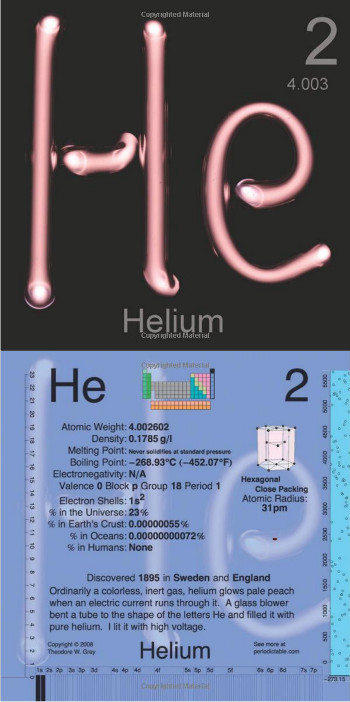 Helium as seen in Theo Gray’s The Photographic
Card Deck of the Elements. The top picture is top of the card, and the bottom picture is the "face" side of the
card.
Helium as seen in Theo Gray’s The Photographic
Card Deck of the Elements. The top picture is top of the card, and the bottom picture is the "face" side of the
card.